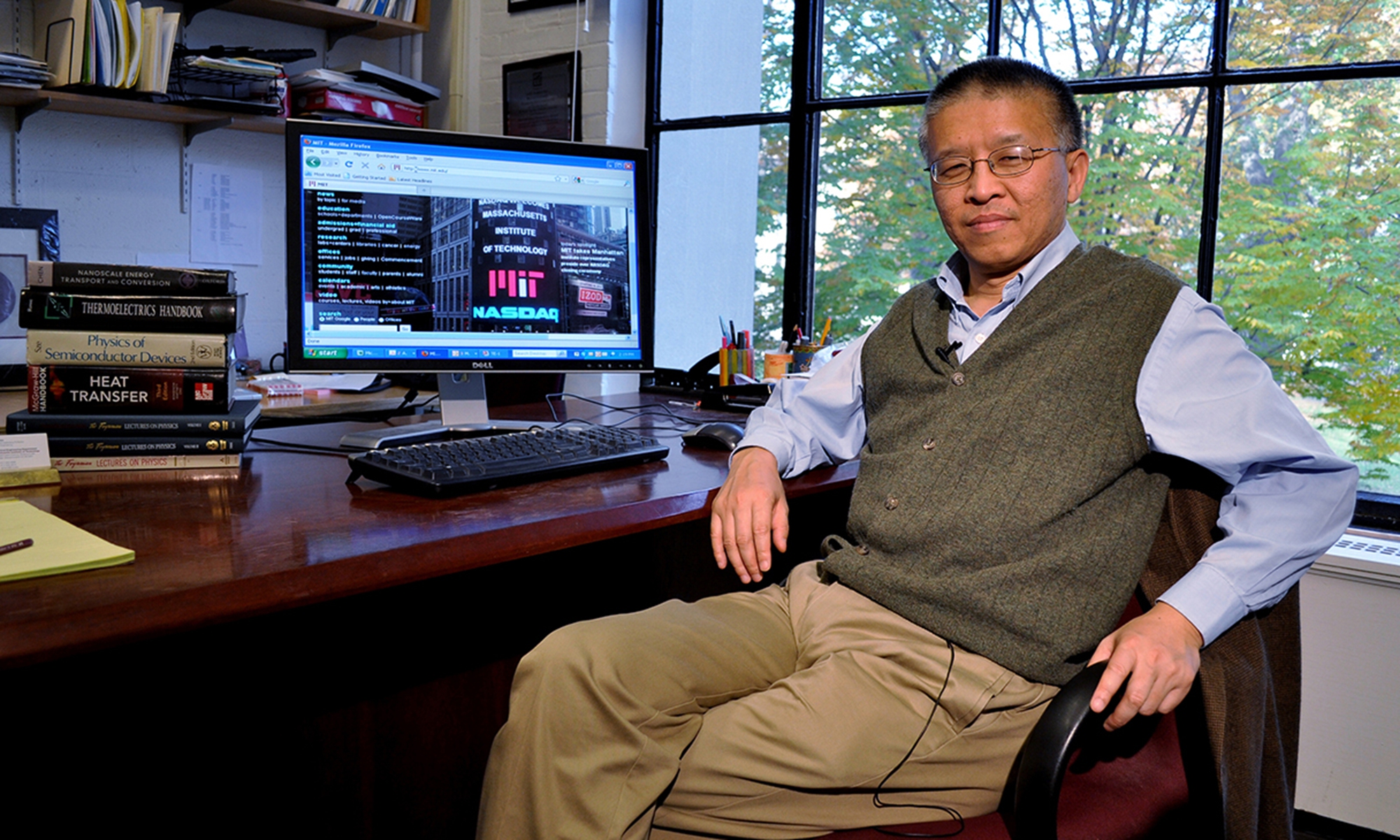Eight Chinese-American scientists named as members of US National Academy of Sciences

Chen Gang Photo:Courtesy of MIT
Eight Chinese-American scientists have been named on the latest list of members of the US National Academy of Sciences (NAS), which was announced on Tuesday. Eight is an unusually large number, but it should not be seen as a sign of improvement in the situation for Chinese scholars in the US, insiders said.
Seven Chinese-Americans were named NAS fellow scholars in 2021 and six in 2022, according to media reports.
It is noteworthy that Chen Gang is among the eight selected this year. Chen is a renowned scholar and is a professor at the Massachusetts Institute of Technology (MIT). Chen was involved in the US' "China Initiative" and was arrested and investigated in 2021. Chen's arrest sparked a huge backlash in the academic community, with more than a thousand researchers, including MIT employees, signing a petition.
There were no foreign academics of Chinese descent among the 23 newly elected international members of the NAS in 2023. In previous years, scientists of Chinese descent have been elected as foreign fellows from time to time.
Election to the National Academy is widely considered one of the highest honors in the US scientific field. According to the NAS, it is a private, nonprofit institution that was established under a congressional charter signed by President Abraham Lincoln in 1863. It recognizes achievements in science by election to membership, and provides science, engineering, and health policy advice to the federal government and other organizations.
Chen was arrested in January 2021 and accused of failing to disclose ties to China. He was charged as part of the controversial "China Initiative," launched by the US Department of Justice under then president Donald Trump.
After acknowledging it could "no longer meet its burden of proof" in court, a federal court in Boston dismissed the charges against Chen in January 2022.
"While I am relieved that my ordeal is over, I am mindful that this terribly misguided China Initiative continues to bring unwarranted fear to the academic community and other scientists still facing charges," Chen later said in a statement.
In recent years, scientists of Chinese descent have been in an awkward position in the US, especially after the China Initiative was launched in 2018 by the US Department of Justice to investigate perceived "Chinese spies" in American research and industry. According to a survey of nearly 2,000 scientists at 83 research institutions conducted by the University of Arizona and Committee of 100 in 2021, 50.7 percent of Chinese scientists in the US report feeling concerned that they are being surveilled by the US government, compared to only 11.7 percent of non-Chinese scientists.
In the first year of the China Initiative, 1,062 researchers left the US to continue their research elsewhere and in the three years since, 3,878 more have left.
However, the election of Chen Gang to the NAS does not signal an improvement in the situation of Chinese American scientists, several insiders told the media.
A Chinese scientist who has held a faculty position in the US said Chen's election is mainly based on recognition of his academic ability. "The National Academy of Sciences is a semi-official, private organization that does not reflect the attitude of the US government," he was quoted as saying by Chinese online media outlet Zhishi Fenzi.
Xia Zhihong, a tenured professor at Northwestern University and editor-in-chief of Zhishi Fenzi, said Chen's election will have little impact on the situation of Chinese-American scientists and those with Chinese descent in the US. His view was also echoed by other Chinese scholars.
"There is no indication that this is a landmark event for the improvement of the situation [of Chinese scholars]," Xue Haipei, president of the United Chinese American Association (UCA), told Zhishi Fenzi.
"Even though the China Initiative has now ended, the situation for Chinese scholars in the US has not substantially improved," he said.

